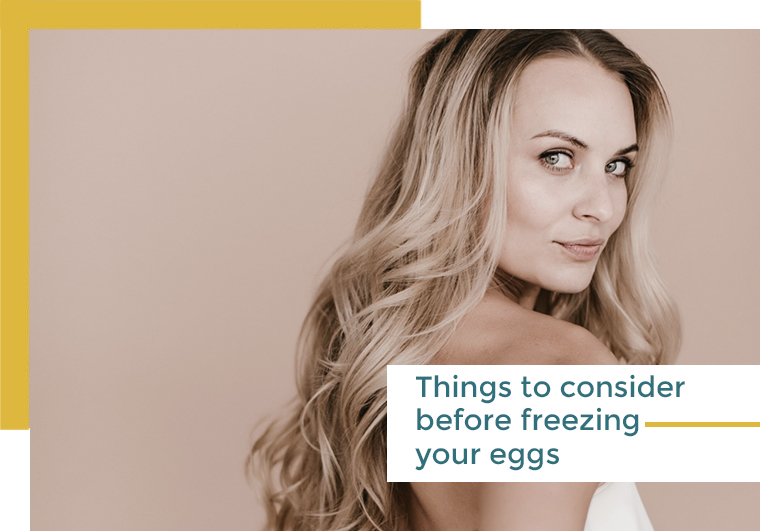Things to consider before freezing your eggs
Not ready for a baby yet, but also worried about leaving it until it is too late? Then you may have been thinking about preserving your fertility with egg freezing.
Across the world, fertility preservation options have progressed significantly over the past ten years with egg freezing now being readily available to women of reproductive age. Specifically, the advent of new vitrification techniques have increased success rates for achieving a pregnancy using frozen eggs and hence created significantly more interest in the technique.
Here are some of the top things to consider before freezing your eggs:
1. Am I the right age to freeze my eggs?
While there is no definite age to freeze your eggs, Chill’s suggested age range is between 25-37 years. However, your fertility specialist will discuss your suitability and the best option for your individual situation at your first consultation. Research shows that by freezing eggs at a younger age, you not only preserve the egg quality (as frozen eggs don’t age), but you also have a better chance of retrieving more eggs.
2. Am I guaranteed of a baby if I freeze my eggs?
There is no guarantee of having a baby with either your fresh or frozen eggs. However, our team of specialists will work with you to determine your current fertility health and create a personalised treatment plan to suit your individual requirements, thus providing you with the best possible chance of success. Our highly experienced specialists will always begin by discussing your chances of achieving a pregnancy, using frozen eggs, based on your personal circumstances.
3. How long can I store my eggs for?
Frozen eggs can be stored for many years prior to being thawed and fertilised, with similar success rates as eggs that are fertilised fresh.
4. What are the main reasons people freeze their eggs for?
Delaying parenthood is probably the primary reason people choose to freeze their eggs. The challenge of leaving motherhood until later in life is that egg quality and quantity decreases as women age, negatively impacting natural conception success rates. By freezing eggs at younger age, it not only preserves the egg quality (as frozen eggs don’t age), but also gives you a better chance of retrieving more eggs.
Another very valid reason to freeze eggs is for medical reasons. These can include genetic conditions that could limit fertility like Turner Syndrome, a medical condition like endometriosis or PCOS, a family history of premature menopause, or a cancer diagnosis with the need to undergo chemotherapy.
5. Is egg freezing reliable?
Egg freezing has advanced rapidly over the past ten years from the old traditional slow-freezing methods to the method Chill currently used call Vitrification.
The process involves the egg(s) being cooled so rapidly that the water molecules do not have time to form damaging ice crystals and instantly solidify into a glass-like structure. The concept is based upon the idea that if the cell is dehydrated to a certain degree and then cooled fast enough, everything will ”freeze” in place and damage will not have time to occur. Vitrification is delivering enhanced survival of preserved eggs and IVF success rates using fresh or frozen eggs are now very similar according to several studies.
6. What can affect my egg quantity and quality?
Many factors can impact egg quantity and quality but the most prominent one is age. Women are born with a finite number of eggs with quality deteriorating with age (more rapidly from 35 years old). However older women can have good quality eggs, they just have less of them.
Other conditions can also affect number and/or quality of eggs, thankfully, these are rare, and with treatment, most women can achieve a pregnancy – these include endometriosis, polycystic ovarian syndrome (PCOS), cancer and its treatments, autoimmune disorders, premature menopause, chromosomal abnormalities, fragile X syndrome and ovarian surgery.
7. What does the process of egg freezing involve?
Egg freezing involves a woman’s mature eggs being developed and removed using standard IVF techniques. The process typically involves three stages of treatment: pituitary suppression; ovarian stimulation; and egg retrieval.
For more information about egg freezing visit Chill https://www.chilleggfreeze.com.au/ or call us on 1300 215 332.



